Iran Press/Iran news: The literature of Iran (Persian Literature) is among the oldest in the world, spanning thousands of years, and has influenced the literary works of many other cultures.
Persian art and Literature or Iranian art has one of the richest art heritages in world history and has been strong in many media including architecture, painting, weaving, pottery, calligraphy, metalworking and sculpture.
Persian literature is the jewel in the crown of Persian culture. It has profoundly influenced the literatures of Ottoman Turkey, Muslim India and Turkic Central Asia and has been a source of inspiration for Goethe, Emerson, Matthew Arnold and Jorge Luis Borges among others.
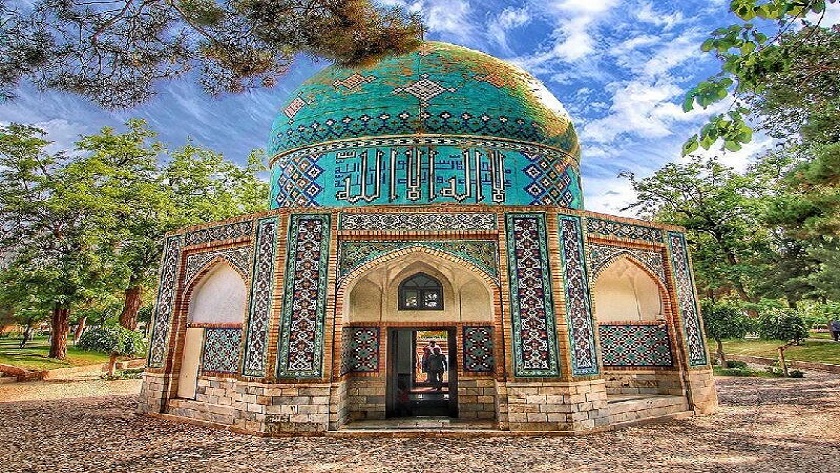 Attar tomb in Nishapur
Attar tomb in Nishapur
Biography of Attar
Abū Ḥamīd bin Abū Bakr Ibrāhīm (c. 1145 – c. 1221) better known by his pen-names Farīd ud-Dīn and Attar, was a Persian poet, theoretician of Sufism, and hagiographer from Nishapur who had an immense and lasting influence on Persian poetry and Sufism. Manṭiq-uṭ-Ṭayr [The Conference of the Birds] and Ilāhī-Nāma (The Book of Divine) are among his most famous works.
Related article: Persian literature; what Iran is known for
As a young man Farīd al-Dīn traveled widely, visiting Egypt, Syria, Arabia, India, and Central Asia. He finally settled in his native town, Nishapur, in northeastern Iran, where he spent many years collecting the verses and sayings of famous Sufis. His name, Attar, which literally means a perfumer or apothecary, may indicate that he, his father, or his grandfather practiced that trade.
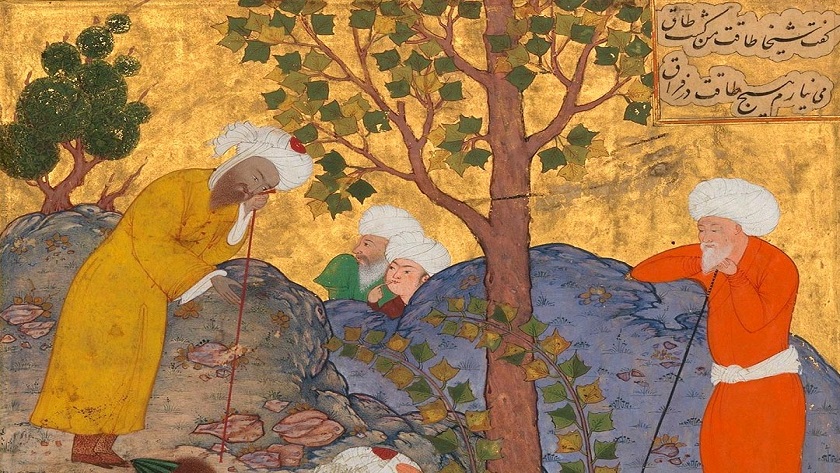 Attar gained knowledge through numerous travels
Attar gained knowledge through numerous travels
Attar means ‘apothecary’ and this nickname was given to him due to his profession. He was probably the son of a prosperous chemist, receiving an excellent education in various fields. He practiced the profession of pharmacy. The people he helped in the pharmacy used to confide their troubles in `Attar and this affected him deeply.
Eventually, he abandoned his pharmacy store and traveled extensively, seeking wisdom in Baghdad, Basra, Kufa, Mecca, Medina, Damascus, Khwarizm, Turkistan, and India, before finally returning to his birthplace Nishapur.
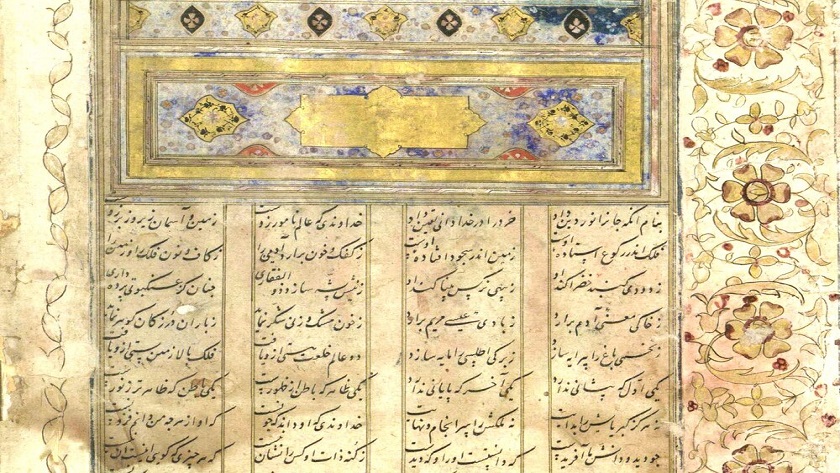 Attar, considered by Rumi to be “the master” of mystic poetry
Attar, considered by Rumi to be “the master” of mystic poetry
Attar's significance in Persian Literature
Attar is one of the most famous mystic poets of Iran. His works were the inspiration of Rumi, Hafiz, Jami, Nava'i and many other mystic poets.
Ilahi-Nama, Mukhtar-Nama, Musibat-Nama, Jawahir-Nama, Sarh al-Qalb, Divan, Tadhkirat-ul-Awliya (Memorial of the Saints) and Manṭiq-uṭ-Ṭayr (The Conference of the Birds) are among his major works.
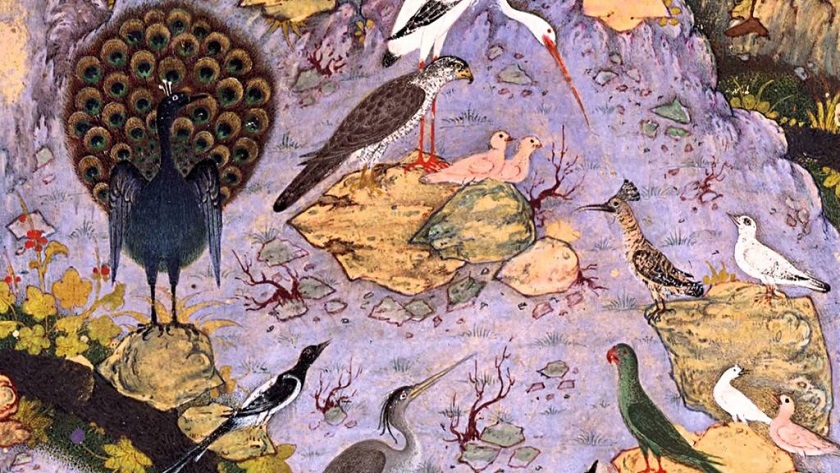 The Conference of the Birds
The Conference of the Birds
The greatest of Attar's works is the well-known Manṭeq al-ṭayr (The Conference of the Birds). This is an allegorical poem describing the quest of the birds (i.e., Sufis) for the mythical Sīmorgh, or Phoenix, whom they wish to make their king (i.e., God). In the final scene the birds that have survived the journey approach the throne contemplating their reflections in the mirrorlike countenance of the Sīmorgh, only to realize that they and the Sīmorgh are one.
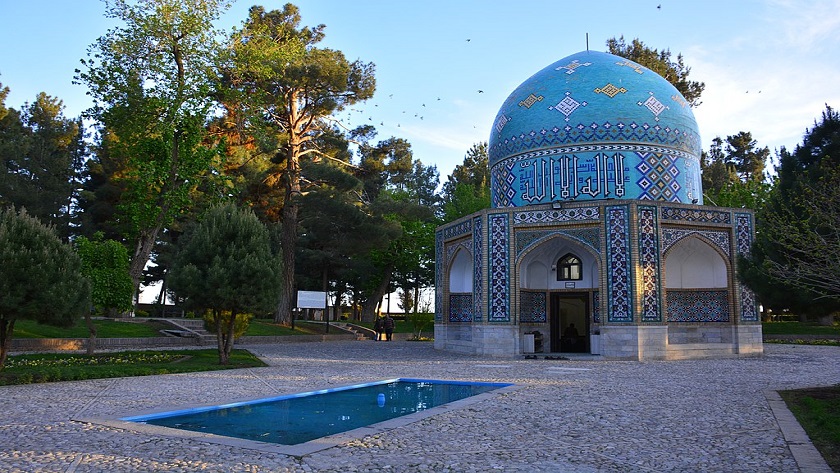 Attar significance continues to be influential in World culture
Attar significance continues to be influential in World culture
Attar's Legacy
The prominent Argentine poet, essayist, and short-story writer, Jorge Luis Borges, has compared Attar's The Conference of the Birds with the Divine Comedy of Dante. “That anyone has ever been able to surpass one of the great figures of the Divine Comedy seems incredible, and rightly so,' he says in his Nine Essays on Dante, adding that 'nevertheless, the feat has occurred.”The poet has been valued by Iranians throughout the history.
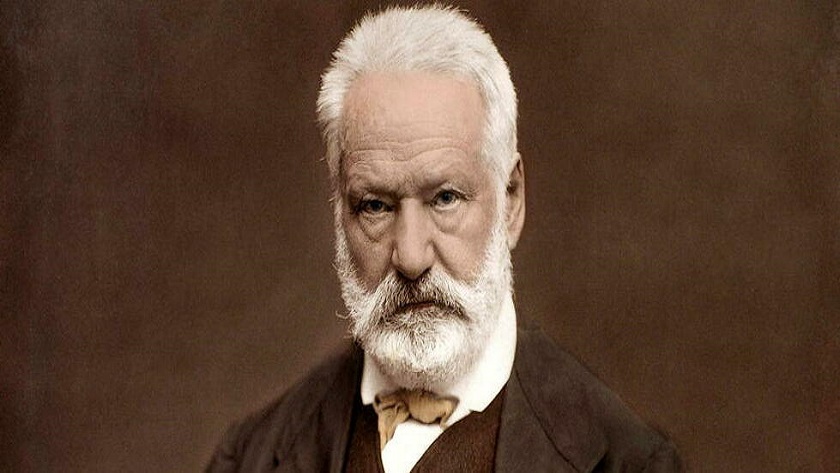 Victor Hugo was influenced by Attar
Victor Hugo was influenced by Attar
Also, great French literary figure Victor Hugo became familiar with Attar through Ernest Fuin Baudiya’s translation of Attar's works. He mentioned Attar in his Les Orientales book. In Victor Hugo’s “The Legend of the Ages” Attar’s influence is clear.
In contemporary Iran, April 14 is designated as Attar's National Day in the Persian calendar to mark the contribution his works have made to the Persian literature.
Read More:
Rumi; What Iran is known for
Omar Khayyam; What Iran is Known for
Ashkan Salehian

